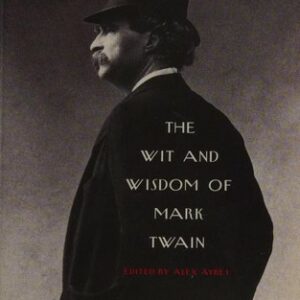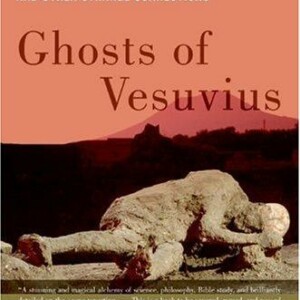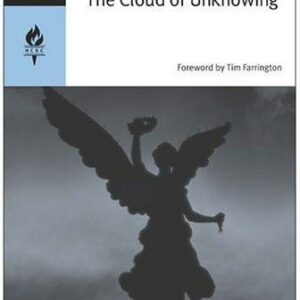Far Far Away
$16.00
| Title | Range | Discount |
|---|---|---|
| Trade Discount | 5 + | 25% |
- Description
- Additional information
Description
A National Book Award Finalist
An Edgar Award Finalist
A California Book Award Gold Medal Winner
A dark, contemporary fairy tale in the tradition of Neil Gaiman.
Jeremy Johnson Johnson hears voices. Or, specifically, one voice: the ghost of Jacob Grimm, one half of The Brothers Grimm. Jacob watches over Jeremy, protecting him from an unknown dark evil whispered about in the space between this world and the next.
But Jacob can’t protect Jeremy from everything. When coltish, copper-haired Ginger Boultinghouse takes a bite of a cake so delicious it’s rumored to be bewitched, she falls in love with the first person she sees: Jeremy. In any other place, this would be a turn for the better for Jeremy, but not in Never Better, where the Finder of Occasions—whose identity and evil intentions nobody knows—is watching and waiting, waiting and watching. . . And as anyone familiar with the Brothers Grimm know, not all fairy tales have happy endings.
Veteran writer Tom McNeal has crafted a young adult novel at once grim(m) and hopeful, full of twists, and perfect for fans of contemporary fairy tales like Neil Gaiman’s The Graveyard Book and Holly Black’s Doll Bones. The recipient of five starred reviews, Publishers Weekly called Far Far Away “inventive and deeply poignant.”Starred Review, Publishers Weekly, July 8, 2013:
“McNeal weaves in fantastical fairy-tale details into this inventive and deeply poignant narrative, creating a world that hovers between realism and enchantment.“
Starred Review, The Horn Book, July/August 2013:
“McNeal superbly and elegantly enfolds those stories’ essence and depth into plot, setting, and characters; archetypal figures and situations glimmer through McNeal’s small-town American cast like tantalizing clues in a novel that becomes ever darker even as it sparkles with the dignified, affectionate voice of its ghostly narrator.”
Starred Review, The Bulletin, June 2013:
“Enchanting, romantic, and tinged with terror, this modern story subtly weaves the haunting essentials of the fairy-tale tradition into a fascinating and beautifully written homage to its source material.”
Starred Review, School Library Journal, June 2013:
“Whether readers connect more deeply with the suspense, the magical elements, or the gloriously improbable love story, they will come away with a lingering taste of enchantment.“
Starred Review, Booklist, June 1, 2013:
“Reminiscent of Hansel and Gretel, and rife with allusions to Grimm Brothers’ tales, this is a masterful story of outcasts, the power of faith, and the triumph of good over evil.”
Review, Wall Street Journal:
“Stunning. [A] beguiling, horrifying and gracefully written novel.”
Review, The Atlantic Wire:
“McNeal weaves his modern tale in the fairy-tale tradition, and it will haunt and delight.”
Review, BookPage:
“Far Far Away is an incredibly imaginative modern fairy tale told through the first-person narration of the ghost of Jacob Grimm . . . Suspenseful with a sinister villain, Far Far Away is equally heartwarming as it is scary.”
Review, Shelf-Awareness:
“McNeal structures the novel like a fairy tale, and the overwhelming sense of danger surrounding the village like a deep forest will keep readers glued to the edges of their seats.”TOM MCNEAL holds an MA in creative writing from UC Irvine and was a Stegner Fellow and Jones Lecturer at Stanford University. He is the author, with his wife, Laura, of four young adult novels published by Knopf: Crooked, Crushed, The Decoding of Lana Morris, and Zipped. His adult titles include Goodbye, Nebraska and To Be Sung Underwater. He lives with his wife and two sons in Southern California. Visit their website at McNealBooks.com.Doubtless there are specters who do not respect the privacy of mortals, but I am not one of them. At day’s end, I kept Jer- emy company only until he said, “Good night, Jacob,” and then I took my leave. Sometimes, when he was feeling solitary, he would delay saying good night and we would talk before he fell to sleep. When his spirits were low, I would remind him of one of the day’s pleasant occurrences—a kind word from a teacher or the sight of a gliding nighthawk silhouetted by the moon. Such thoughts sometimes helped him slip into the sweet arms of sleep.
This night, however, Jeremy was ready for slumber. Still—I could not help myself—I reminded him that we had not finished our vocabulary study.
“Wake me early,” he said. “We’ll study then.”
Of course, I said.
“Good night, Jacob.”
Good night, Jeremy.
After retiring from Jeremy’s attic, I made my way to the belfry of the white church built by the town Lutherans. Here I passed my solitary evenings no matter the season, for while I might be- hold the beauty of snow, I was not chilled by it, and though I might hear the buzz of the summer’s mosquito, I was beyond its bite.
I stretched my vaporous legs and gazed out at the vast prairie and sky and thought my disquieting thoughts. Distractions occurred—a star might shoot by, a browsing mouse might rustle a dry leaf, an owl might swoop from a nearby tree—but my apprehensions always returned.
The thing undone.
The unknown yet unmet desire.
This riddle is my prison; I am trapped within it. The answer—the thing undone—is the door that might release me from the Zwischenraum, but if I could not find the door, how could I open it?
What could it be—this thing undone? The Deutsche Wörterbuch, the monumental dictionary that Wilhelm and I undertook to compile, was of course undone. This was my first thought. When Wilhelm died, we were on words beginning with D. At my death, the work was in its seventh volume, and yet I had gotten only to F. But this could not be the thing undone, for it was a thing I could not do. From the Zwischenraum I could not con- tinue our work on the great dictionary, or even encourage others to take it up. So it was not that.
Had Wilhelm and I been alive, we would have discussed the thing undone, approached it with reason, determined its nature, devised a method of correction. But I was alone in the Zwischenraum. I had no advice and no answers and no methods. I had only a tender, terrible yearning for my absent brother.
I wondered if the Zwischenraum was not a riddle to be solved and escaped from but, in fact, Hölle—hell itself—or die Hölle auf Erden—a living hell. And with that came the nagging fear that the maid in Steinau had been right, that Wilhelm was not here because he had passed beyond to a better place, a place I had no way of reaching.
The thing undone.
The unknown yet unmet desire.
Finally, I remembered how, one night in a meeting hall, an aged traveler regaled Wilhelm and me with tales of faraway places, the Russian steppes, the Ganges and Nile rivers, the Great Wall of China, the Canadian Yukon, the American Bad- lands, on and on, each place more fascinating than the last.
That night, as we had walked home under a cold moon, Wilhelm said, “All those marvelous places.” It was a soft, damp evening. The village butcher, passing by with his terrier, touched his hat to us. We had just turned up our lane when Wilhelm said, “We must go to these many places, Jacob, before we rest.”
But we had our tales to transcribe and then the great diction- ary to compile. One works and works, and then one morning the elm tree outside one’s study shatters into the smallest of pieces, and the room in which one sits shatters, and the niece with whom one sits shatters, too, and—blitzschnell!—in the quickest instant the life that one has taken as one’s daily due has been converted to this . . . what? . . . this place between smelling and tasting, between speaking and being heard, between living and finding peace.
But Wilhelm’s words—We must go before we rest—had given me an excuse for movement. In one of the tales, a prin- cess searching for her twelve brothers says that to find them she would travel as far as the sky is blue. It is a beautiful phrase, one that Wilhelm himself added, and it seemed now to command my own quest. I would travel as far as the sky was blue to find him. I needed no shelter, no food, no fire, no rest. However forlorn a ghost might be, he moves quickly and smoothly, without pause or break, and that was what I did.
China, Mongolia, the Yukon, on and on, all of those places Wilhelm had wanted to go, everywhere looking for Wilhelm’s genial face, but I did not find him, and as months passed and then years, my hopes grew fainter. He was not here. He had not waited for me. He had passed on, and I had not.
Decades slipped past. Wars, famines, inventions. A century, finally, and half of another.
Then one day I found myself drifting with the wind across the grassy American plains, and I spied at a distance a specter work- ing his way into the wind. He moved slowly—with the wind behind me, I covered four lengths to his one—and soon we approached each other.
I nodded at him and saw in his dull, desperate eyes my own dull desperation.
Wait, I said. To my own surprise, I said this.
I did not expect him to turn, but he turned and hovered, leaning into the wind, waiting for me to speak again.
I am looking for my Bruder Wilhelm Grimm.
The dead man stared at me for a few moments and then— how surprised I was!—his lips curled into the slightest smile, which I beheld as a man in the desert might behold water.
I know who you were, he said, and who your brother was, though I have not seen him. As a boy, I read your tales.
This news had a soothing effect on me.
For a long time, he said, I thought the Brothers Grimm wrote those fairy tales. Not until I was a grown man did I learn you had collected them from others.
From this I knew he had not been dead as long as I, for when I was alive, few would have made this mistake. Yes, I said, most of the tales came from citizens of Hesse, where we lived for a long time, so, for my brother and me, the associations were tender.
We talked for some time, though the man’s smile had now dried up and he kept peering north, into the wind, as if he had some appointment there to keep. I asked him if we might travel together in search of my brother, but he said he could not. He must travel on, against the wind.
For how long?
He looked at me with hollow eyes. Until I no longer must.
Why? I asked. Why into the wind? What for you is the thing undone?
He bent his head and said, On the answer to that question I will float away from this wretched place.
So he, too, was enduring his own form of living Hölle.
We parted company, that desperate soul and I, but a short time later I detected his voice carrying downwind to me: Hallo, hallo.
I turned and saw him at a great distance motioning me his way. He could not come with the wind, so I must go into it. It took some effort, but in time I had overtaken him.
Yes?
I have remembered something that may be of interest to you. In a town some distance from here, there is a boy who can hear us. The slight smile again formed on the specter’s face. A boy who sleeps in an attic full of fairy tales.
I felt something hopeful stirring within me.
It is more even than that, the stranger said. I was told by an- other specter—a small, nervous woman from Moldova—that there was also in this town a Finder of Occasions who would bring harm to the boy.
A Finder of Occasions? I asked, and the stranger replied, Someone who lies in wait until the opportunity is afforded to do harm or wreak havoc—here he cast his ancient, unhappy eyes at me—without leaving a trace behind.
How will I know this boy? I asked. What is his name? Where will I look for him?
He lives in a bookstore. The village itself can be seen only from the corner of the eye.
What?
It is difficult to find but, once found, you will never lose it. The stranger closed his eyes and searched his memory. There were red buttes nearby. Red-stone buildings in the town. The smell of sulfur. A bakery with wondrous scents. He sighed and squinted into the wind. I cannot tarry. I must go.
How do I locate this Finder of Occasions? I asked, but already the stranger had turned and begun to work his way into the wind.
Off I hastened, full of expectation, but this boy and his store filled with books and his attic full of tales were not easily found. From village to village I went, from house to house and shop to shop until finally—I cannot tell you how many days had gone by—I stopped one evening and stood perfectly still. I closed my eyes and let the night wind move past me as the water moves past a rock in the river. How much time slipped by in this manner I cannot say, but when I again opened my eyes, the stars had scattered and the moon had moved and off to the side, almost behind me in fact, in the thinnest sliver of vision, I could just detect a strange and faint illumination.
I hastened toward this light with uncertainty, and there, taking shape in silhouette, was an array of looming buttes, and a sign that said WELCOME TO NEVER BETTER, and along Main Street there was a bakery producing wondrous aromas, and there, in the last of the business district’s red-block buildings, was a bookstore where a boy sat alone, reading in an armchair under lamplight.
The window was open.
When I drew close and whispered, Listen, if you will, Jeremy Johnson Johnson looked up from his book, cocked his head, and said hopefully, “Mom?”
Honestly, I was sorry to disappoint him. No, I said.
Instinctively, he touched a finger to his temple. “Grandpa?”
Again there was hope in his voice. Again I was sorry to say no.
“Who are you, then?” I cannot explain the phrase I chose. A beggar, I said, echoing
words from one of our tales, an ancient beggar with a broken heart. May I stay here awhile?
Well, what have I told you about this boy’s kindness?—he did not hesitate an instant. “Sure, if you want,” he said, and asked me my name.
Jacob. I pronounced it as it is pronounced: Yaw-kub.
But this was strange to the boy, so he had to repeat it. “Yawkub?”
Yes.
“Your accent is different. Where are you from?”
And do you know what I said? I come from long ago and far away.
“You do?” he said, and I could hear pleasure in his voice, and truly, for the first moment in all my time in the Zwischenraum, I felt something like lightness myself.
Well, that was how it was. As rapidly as that, I stepped into Jeremy’s tale. I will not deceive you. I hoped that by protecting him from the Finder of Occasions, I might somehow achieve the thing undone, and be released at last from the Zwischenraum. I contrived a plan. Jeremy was young and clever, and I believed that the best way to protect him was to move him from this town, and I saw no better way to do this than by his going away to university. So I became not only his protector but also his teacher. And all had gone well, until . . .
On this fateful night I stared out at the thinning darkness and heard the first cock crow, with more soon joining in from one farm and another.
And what was this? Human voices? At this early hour?
Yes. Mein Gott!—down on Main Street—Sheriff Pittswort and Deputy McRaven were walking door to door, trying a particular key again and again, looking for the particular lock that it would open . . . as if in some fairy tale.US
Additional information
| Weight | 12 oz |
|---|---|
| Dimensions | 0.8500 × 5.5000 × 8.3100 in |
| Imprint | |
| Format | |
| ISBN-13 | |
| ISBN-10 | |
| Author | |
| Audience | |
| BISAC | |
| Subjects | young adult fantasy books, kids anxiety, national book award finalists, horror books for teens, newberry award books ages 9-12, tween books for girls ages 11-14, books for 12 year old boys, books for 14 year old boys, books for 13 year old boys, books for 14 year old girls, teen fiction books, books for 13 year old girls, books for 12 year old girls, horror, social emotional books for kids, horror books, ya books, teen books for boys, scary books, YAF058110, fantasy books, YAF026000, feelings, fantasy books for teens, Emotions, fantasy |










